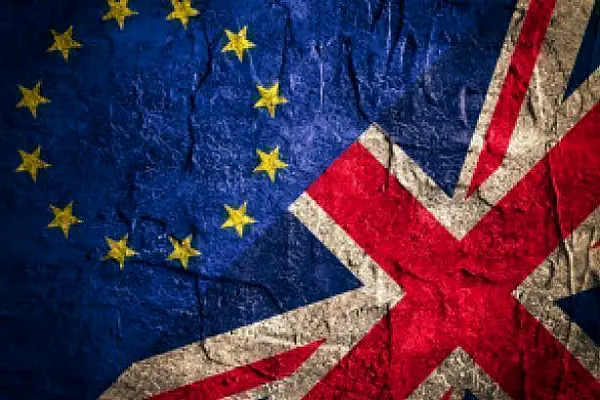The aggregate value of trade in drinks products between the UK and Ireland in 2017 was €364 million, with over 23,000 truck movements by the drinks industry taking place across the Irish border annually, according to the Alcohol Beverage Federation of Ireland (ABFI), which addressed the Joint Oireachtas Committee on Agriculture, Food and the Marine on Tuesday December 4 on the potential impact of Brexit on the agri-food sector.
The ABFI told the committee that the Irish drinks industry operates on an integrated all-island basis with seamless cross-border supply chains and three cross-border Geographic Indications (GIs). These GIs are Irish whiskey, Irish cream liqueur and Poitín.
The ABFI noted that €1.6 billion worth of drinks products were exported from the island of Ireland in 2017, with €1.2 billion coming from the Republic of Ireland. It said that the aggregate value of trade in drinks products between the UK and Ireland in 2017 was €364 million, one third of which, or €121 million, was the aggregate value of north-south trade, while over 130 million glass bottles are imported to the Republic from the UK every year.
Withdrawal Agreement
ABFI told the committee that the Withdrawal Agreement, which will be voted on next week in the House of Commons, represents the best possible approach to Brexit for the drinks industry. This would avoid a "No Deal" Brexit, which the ABFI said would be seriously damaging to the Irish and UK economies, including the all-island drinks industry. Potential consequences outlined by the ABFI included:
- Lack of continuity in legal protection for Irish cross-border GI’s in the UK;
- Immediate tariffs on cream, barley, malt, glass bottles, apples, finished cider and other supply chain inputs;
- Regulatory and custom checks at the Irish border, leading to additional delays and costs;
- Requirement for up-front VAT payments on cross-border trade;
- Excise Border Checks;
- Regulatory divergence across a range of standards from labelling to bottle sizes.
Future Growth Loan Scheme
ABFI called on the Irish government to ensure that the new Future Growth loan scheme announced in Budget 2019, or a separate bespoke strand, is open to Irish distilleries and spirits producers. Under European Investment Bank (EIB) rules, they were excluded from previous loan schemes. This scheme will be available to eligible Irish businesses to support strategic long-term investment in a post Brexit environment.
Important Competitive Advantages
In relation to post-Brexit trade policy, the ABFI said that continued access to EU-backed trade agreements will offer important competitive advantages to Irish drink categories. The recent EU agreement with Canada abolished outstanding tariffs on Irish cream liqueur and Irish gin. The EU is also currently negotiating or concluding free-trade agreements with Australia, New Zealand, Vietnam and the Mercosur bloc.
It noted that free trade agreements, on their own, do not increase exports and that new and enhanced market access requires further work such as participation in trade shows, provision of sales and marketing staff in international markets, effective and robust market intelligence and category promotion. The ABFI said that this in turn would support greater market diversification, which is important for the industry. For example, the ABFI said that in the case of Irish beer and cider, the UK remains the dominant market for exports with 71% of all beer exports and 85% of all cider exports going to the UK in 2017.
Public Health (Alcohol) Act
The ABFI also told the committee that while free trade is often primarily viewed as a matter of tariffs, the issue of technical barriers to trade is equally important. It said that the Irish government has sought to introduce a barrier to trade by seeking to introduce country-only labels for Ireland under the recently-enacted Public Health (Alcohol) Act 2018, and that this measure will deter small beer, cider, wine and spirits producers from exporting to Ireland as these producers will now require new labels just for Ireland.
While the Act is now on the statute books, the ABFI said there remains many unanswered questions in relation to how it will be implemented and the federation repeated its call to the minister for health to establish an implementation group, to include industry.
"Risks And Opportunities"
ABFI director Patricia Callan commented, "Brexit comes with a number of potential risks and opportunities for the Irish drinks industry.
"All things considered, we believe that the adoption of the Withdrawal Agreement, which will be voted on next week, represents the surest way to avoid negative impacts, such as regulatory divergence and additional costs.
"Despite the risks ahead, it’s important to note that the industry is confident that we will manage through Brexit and will do everything possible to limit the impact on our consumers.
"We would like to commend the government and state agencies, for the proactive and comprehensive programme of information and supports being made available to companies to plan and prepare for the impact of Brexit and look forward to working with them further to prepare and plan."
© 2018 Hospitality Ireland – your source for the latest industry news. Article by Dave Simpson. Click subscribe to sign up for the Hospitality Ireland print edition.









